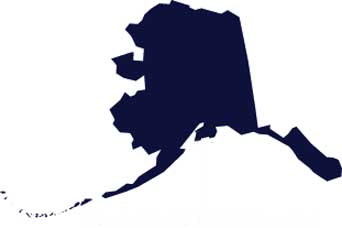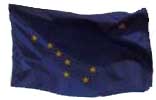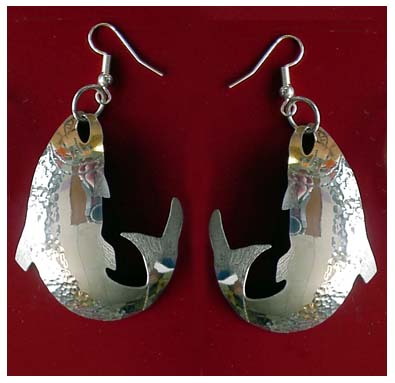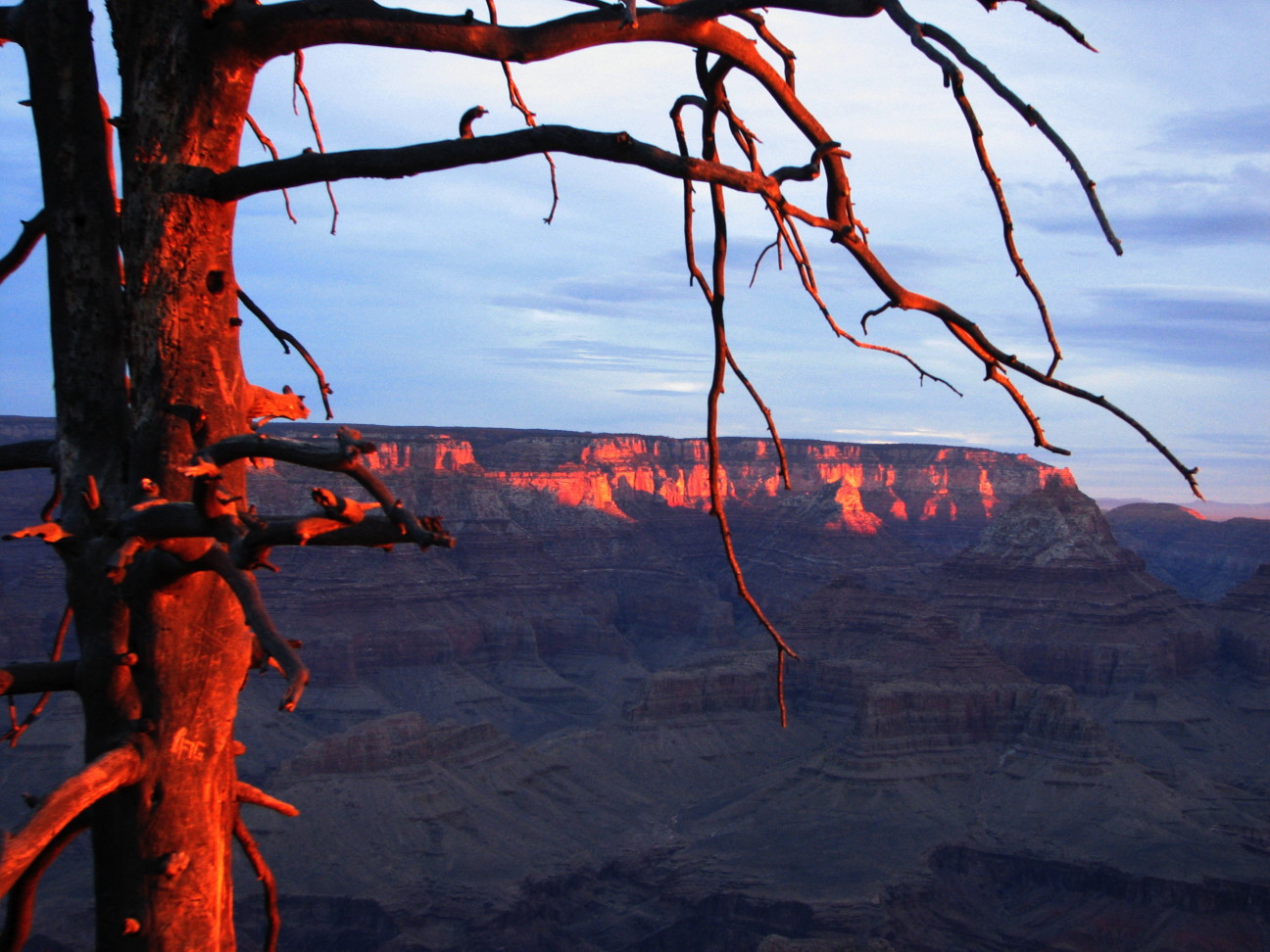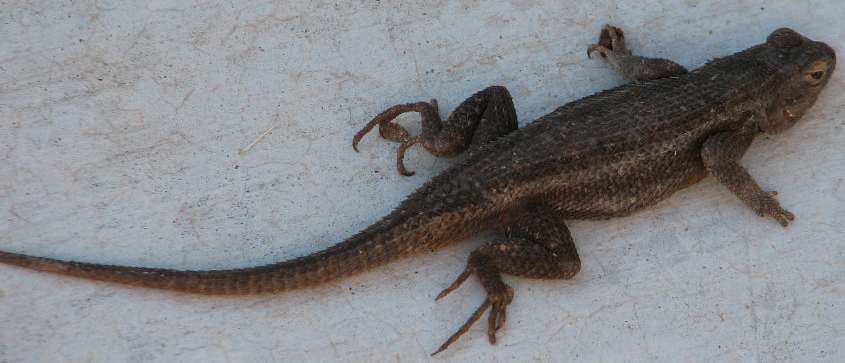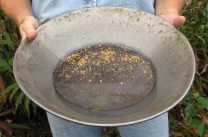
Russian Imperial Palace
TRAVEL ABROAD
Fairbanks, New York, Philadelphia, Washington, D.C, Helsinki, Moscow and St. Petersburg and back.
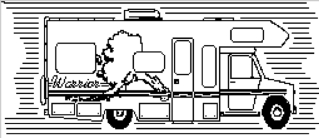
The Warrior
|
|
Into the 21st Century An RV is like a magic carpet. 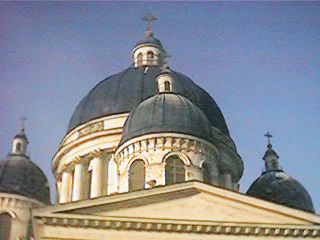 It is camping without
the ground, the rain, the smoke in the eyes. Oh! There is a time and place for all that, but an RV
takes you places! More than that, those places are jumping off points. In our case, without the RV
we would not have been in Florida for the free cruises. And this year we would not have made it to
Pennsylvania, the jumping off point for our trip to Russia. It is camping without
the ground, the rain, the smoke in the eyes. Oh! There is a time and place for all that, but an RV
takes you places! More than that, those places are jumping off points. In our case, without the RV
we would not have been in Florida for the free cruises. And this year we would not have made it to
Pennsylvania, the jumping off point for our trip to Russia.
"By the 'way" October 1998 Moving into the 21st Century With two years to go we are getting more hi-tech. This is our first electronic newsletter It's a "small world after all" We met a wonderful couple, Bill and Erica, in Redmond. Background: Melody's father, Leon, is married to a lady named Helen. Helen asked us to contact Bill and Erica. Helen and Erica are her long-time friends. As it turned out, my father already knew Bill from activities they had shared in the Redmond area. In Spokane, we visited with Ron and Becky, formerly of Fairbanks, formerly of Eastern Washington and now back in that area. Becky makes a terrific clam chowder even after driving with family for the weekend to Tacoma and back. Ron, our life insurance agent, went over some of our investments with us. I just know that would have been more fun about a month earlier. But it was more "interesting" now! (See recent stock market performance for details.) See more, drive less This year will take fewer Interstates and drive fewer miles per day so we hope to see more of the real U.S. You can't see as much from the Interstates, but you don't have to take farm roads either! As you may recall, Melody had mouth surgery last year about this time and the first month on the road was mostly spent making certain we had enough really really strong pain-killer. She is having more fun this year!! We are taking highway 95 south from Spokane which eventually crosses into Idaho near Lewiston. It is some of the finest country in the country. The weather is spectacular and that helps. This is farm country and that is so appealing. The tidy farms are a joy to behold. It is exciting to see the harvests are in and soil is being prepared for the next planting. The hills here roll for miles and miles and the patch work of light emerald, golden stubble, and rich brown earth is the finest quilt one can imagine. For those of you who may not know, our plans this year call for visits in around the Great Lakes, including Rochester, NY; we hope to visit New York, New York (the town so nice they named it twice). On November 5 we will be flying to Helsinki; then to Moscow, to start our week in Russia. While on the East Coast we will be visiting with friends and relatives. After Russia we'll work our way into FL for a few days before heading to Louisiana to help friends bottle and label this year's batch of wine. (More about that in later letters). We will be in Texas for a while, too, and then on to Arizona. Technology on the Road We are traveling with two Powerbooks, relying on America Online (AOL) for e-mail, and have picked up a dandy and very compact HP340 color printer for print work. We also have a basic digital camera which works fairly well. For some odd reason getting any kind of service or attention in computer stores if you own a Macintosh is pretty much impossible in the Puget Sound area. I am not sure if there is an official "Gates Effect" at work, but most people there just shrug if you are looking for anything "Macintosh compatible. If you need something "Microsoft compatible" perhaps the weather would clear, the skies open up, and a chorus of angels would sing... or not.... who knows? Joke of the day from Dennis at the AK Dept. of Fish & Game: "Only in Arkansas... According to the Knight-Ridder News Service, the inscription on the metal bands used by the U.S. Department of the Interior to tag migratory birds has been changed. The bands used to bear the address of the Washington Biological Survey, abbreviated "Wash. Biol. Surv." Until the agency received the following letter from an Arkansas camper: "Dear Sirs: While camping last week I shot one of your birds. I think it was a crow. I followed the cooking instructions on the leg tag and I want to tell you it was horrible." The bands are now marked "Fish and Wildlife Service". Have a good winter. "By the 'way" October 1998 The Great Plains Miles of wheat and corn fields may seem monotonous, but the farmlands of the Great Plains are a busy place. Farm lands warm the heart. These vast fields of grain are worked by productive people and it amazes me. The ingenuity of the human mind is evident in farming. Not just getting the earth to produce, but harvesting with an array of strange machines that cut, pick, shuck, and store the Earth's bounty. In places there are patches of rich farmland surrounded by rocky fields. And the farmer has found almost every square foot of tillable soil amidst it all, to bring in a good harvest. The results remind me of the story of the man who bought some raw land which was not considered great farm land but after ten years of hard work the place was neat and productive. The local minister visited one day and remarked "It is remarkable what you and God have accomplished here." The farmer, replied, "Thanks, but you should have seen the place when He was in charge of it!" Gas Prices Mostly regular unleaded gas has been in the mid to high 90s across the country. At the Flying J truck stop near DesMoines, IA, regular unleaded was just under $1. Last year it was nearly $1.18 at the same stop!! We paid 86.9 cents/gal in Indianapolis, IN. Prices went up in New York, around $1.05-$1.10. In Pennsylvania it is often right at $1.00 In a world of remarkable people We stopped in Indianapolis to visit a remarkable friend. Her name is Becky, and she is afflicted with a curious disease called myositis occificans. Her muscle tissue is slowly calcifying. We met her last year. She still volunteers in the schools to evaluate reading skills of primary grade kids and reads to one autistic child. In her mid-30s, she weighs less than 75 pounds and less than half of her lung capacity remains. She stands for hours every day, because she cannot sit or lie down unless someone is present to help her turn over. Her jaws are locked shut. Eating is a real challenge. She has no self-pity, talks frankly about the possibility that she could die soon; but she does not dwell on it. We pop in for a visit, with the cats, for her, then we're on our way again. She enjoys the cats as much as us; maybe more! She is a character and driving 300 miles or so out of our way is definitely something to look forward to for us. She suffers from the most severe form of the condition, known as Progressiva (MOP) (what Becky has, I think) is thought of as a disease which begins early in life marked by a gradual conversion of the muscles into bony tissue. Ultimate Outdoor Store We stopped again this year at "Cabella's" in Kearney, NE, a nice day's drive east from Cheyenne, WY, on I-80. What a wonderful store for outdoor equipment of all sorts. The place is adorned with more animal carcasses than usually suits our taste, but that is a choice of decor, or utility, not sport. We have both hunted for meat and find hauling the remains in to be stuffed (unless it is a bird on the dinner table), a whole lot of trouble. The place bills itself as the biggest outdoor outfitter in the country. It was started by three brothers some years ago, who sold 12 hand-tied fishing flies for a dollar, by mail order. L.L. Bean's all over again! The prices are reasonable and the quality of the equipment seems uniformly excellent. They even have a "rifle library" if you needs a good firearm! The RV Goes Home for a Visit We made a dash across the prairies from DesMoines, IA, to Middlebury, IN, to make sure we got to the Coachmen factory on a weekday. The factory is where they made this thing we call home, and we wanted to tour the plant. It was fascinating seeing a series of about 16 truck frames in various stages of construction from deck to roof being assembled. It was also a lot of fun since we were the only ones on the tour and our guide was a nice young man who knew the answers to a lot of our questions and had the time to answer them. We saw the '99s being built; frankly we are still in love with our '94. The new ones don't seem to match up. Haa haa, so there! Cultures within a culture Coachmen let us stay for free in their RV park for two nights. Middlebury is the heart of Indiana's Amish-Mennonite country. We visited a museum which details the evolution of these religions/belief systems from the earliest times when the Anabaptists decided that the whole idea of Baptism should be free will. That is, children do not know what they were being Baptized into. Adults do. And so RE-Baptism (Anabaptism) came into being; quite a departure from the early days. People were persecuted, and even executed, for their beliefs, pretty much guaranteeing their survival as a group The museum was well-done. The story was well told and one can appreciate the differences between these various groups who appear alike, but have distinct differences in their behaviors and deeper faith. The Hutterites are the earliest of the Anabaptists. They are said to be the most successful communal sect in the United States. Mennonites tend to be more outgoing, reaching into technology and things while still maintaining their faith and religious values. (This helps explain what appear to be conservative groups taking tours to other parts of the world by cruise ship and aircraft.) Amish are more conservative in the use of carriages, no phones and TV and things like that. The Amish tend to feel the Mennonites are too temporal, too worldly. The museum was utterly enlightening. The weather was terrific so we could travel about the farm country, avoiding the horse-drawn buggies, of course, in our Mustang, with the top down. In New York we spent time in the little town of Fredonia (on Lake Erie) and then in Rochester (on Lake Ontario). This area of New York, where we have friends and family, harkens back to another time. Curiously it seems almost frozen in time back away from the Interstate and Tollway. The area has been frozen in time so long that freezer burn in the form of old abandoned buildings, empty homes, and vacant factories dot the area. The area is redolent of the 50's and 60's. Many of the residential structures are charming (if a bit run down). There are wineries, of course, and vineyards by the mile. Chautauqua, Brockton, and literally dozens of other neat little towns are like a pearls on a string for miles along two-lane country highways. Family In Rochester we parked in the yard of Phil's Aunt Jinni and Uncle Alex. I first recall meeting them in 1968, and then not again until 1994 when we first started touring the country each winter. Meeting them reminded me of what this is really all about - family. I got to meet and interact with cousins for virtually the first time ever. They have lived in the same nice home just north of Rochester for something like 40 years. Uncle Alex retired from Eastman Kodak some years back and takes delight in helping his wife in her all-consuming passion - quilling. We went "goffing" (that's golfing) for the second and third time in our lives. That is turning out to be fun. Jinni and Alex are tolerant of our learning curve (hook, slice, and divots, etc.). It is a riot. They treated us to dinners out, cabaret theatre, and the zoo with cousin Jeff and his two neat little girls. Alex is a precision craftsman and helped me mill some parts to build two drawers for the bedroom in the motorhome (you can't believe how much wasted space there is in most motorhomes... drawers are 3-4" too short, and in some cases space is simply paneled over. So we are in a space recovery mode, always improving our living space. Nominated for quote of the year Attributed to Rep. Dick Armey. When asked if he were in President Clinton's place, would he resign, he responded: "If I were in the President's place, I would not get a chance to resign. I would be lying in a pool of my own blood, Mrs. Armey standing over me saying, 'How do I reload this damned thing?'" pre-Russia Planning We are near Allentown, PA, at an RV park for the next two weeks. This is part of the rust belt. We have seen numerous closed factories. We also toured the Crayola Factory, and drove through covered bridge country. This RV park is part of a small golf resort made up of manufactured housing. It seems pleasant enough in the hamlet of Quakertown. There are a lot of hamlets down here! Every few miles there is another small town. The owners are letting us park the RV here at a reduced rate while we are in Russia. Today we get a briefing about our Russia trip (11/5-11/12), and go out to dinner with our tour escort and his wife (Bob and Helen). Saturday we will visit two museums in Willmington, DE, which are featuring Czarist Russia. Just in time for our trip! Sunday we're headed into NYC for the day with my cousin who lives in NJ, about 35 minutes from The City. We might go back again the next day on our own. We are also going to Philly, PA, perhaps, on Tuesday. Can you imagine having the Liberty Bell, Statue of Liberty, Kremlin, and Lincoln Memorial all on the same roll of film!? It could happen. The next two weeks could have all those events tucked into one (or two or three) rolls of film! November will be quite a month!! After Russia we will be in MD until after Thanksgiving. That is where Heather's grandfather Sam (on her dad's side) lives. He is a neat old guy. From there, near Baltimore, we will venture into WA DC and hopefully make it to the Smithsonian and of course the monuments. All the best "By the 'way" November 1998 OUR REPORT ON THE RUSSIA TRIP Moscow was founded in 850 AD. 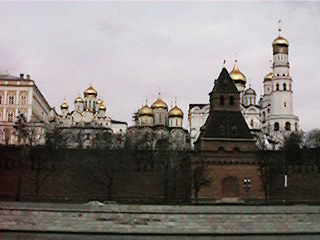 The Kremlin. We toured Red Square, skipped
Lenin's tomb, the line was out the door. The Kremlin. We toured Red Square, skipped
Lenin's tomb, the line was out the door.The Mongols pretty much set the country back 200 years, which means Russia as a geopolitical world force missed out on the Renaissance and had to play catchup. In addition, Ivan the Terrible (who was not all that terrible, actually) chose to side with the Byzantine Empire and its version of Orthodox Christianity. That helps explain the Russian alphabet, religion and customs which differ from those of the West. And Russia has not been particularly fortunate in modern times either, with the Bolsheviks unseating 300 years of Tsarist government just as the Romanov Dynasty was looking at establishing a "Monarchy-Parliament" form of government. So much for (an excessively brief) history. The country is the world's largest; 6000 miles east to west; population of 148 million. The dividing line between Europe and Asia is the Ural Mountains, the highest of which is under 1000'. Basically the two continents are an artificial creation. It is a little like making North America two continents by using the Great Plains as a dividing line. Bring water! The flight to Helsinki took about 8 hours and included two meals a movie and free drinks. Feeling sorry for the passengers over a delay getting to Moscow, the airline gave passengers enough Finmarks for lunch. We bought several bottles of water, and chocolate. This may seem odd, but where we were headed, NO ONE drinks tap water. It was a good decision. Travel trivia It was easier going through customs, with a tour anyway, than it is getting into Canada! There were perfunctory questions about weapons and ammunition, amounts of cash, gold, jewelry, etc. Since none of us were particularly rich, heavily armed or glamourous, we skated. Security was everything it is in the US. Precautions are what you would take in any large city. Using chits from the airline, their form of apology for weather-delayed flights, we bought water once we'd have two lunches on Finair. Good thing too. Russian water is not all that good.  Our expert Russian guide was Veronika (seen here near
St.Basil's on Red Square) Our expert Russian guide was Veronika (seen here near
St.Basil's on Red Square)
our interpreter was Oxana. Moscows population is about 8 million. Another two million live in "Sputniks" or satellite communities (we call them bedroom communities). We stayed at the Cosmos, a reasonably nice 1000+ room hotel which was built for the 1980 Olympics - boycotted by the US over Russia's war in Afghanistan. Our first day city tour included a city tour on the buss as well as side trips to interesting attractions. Passing the KGB building Oxana remarked that in the "old times", that particular building was considered the tallest in Moscow since "You could see Siberia from its basement!" We toured Red Square, the Kremlin, and an extravagant three-story underground modern European-style shopping mall in the center of Moscow. The times they are a changin'. Oxana says virtually all housing in Moscow is now privately owned. Most of the apartments (similar to condos or co-ops in this country) were "sold" for a very small transfer sum to the current occupant after the Communists lost power. She said rent under the Communist Government was not much anyway. Her words: "We pretended to work; they pretended to pay us" and the "state" supported everyone. Muscovites are perhaps more proud of their past than their present. 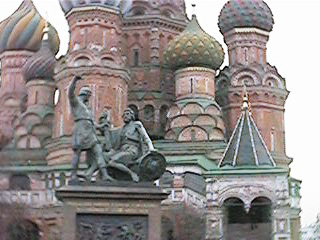 In this detail shot of the beautiful
St. Basil's on Red square, we see the bronze statue to Minin and Pozharsky, erected in 1918. The two heroes
rallied Russia's volunteer army during the Time of Troubles (1598-1613) and drove out the invading Polish forces.
St. Basil's Cathedral was commissioned by Ivan the Terrible and built between 1555 and
1561 to commemorate Ivan the Terrible's successful military campaign against the Tartar Mongols in 1552 in the
besieged city of Kazan. In this detail shot of the beautiful
St. Basil's on Red square, we see the bronze statue to Minin and Pozharsky, erected in 1918. The two heroes
rallied Russia's volunteer army during the Time of Troubles (1598-1613) and drove out the invading Polish forces.
St. Basil's Cathedral was commissioned by Ivan the Terrible and built between 1555 and
1561 to commemorate Ivan the Terrible's successful military campaign against the Tartar Mongols in 1552 in the
besieged city of Kazan.
Whatever else we can say about opulence and gratuitous spending by Imperial rulers like the Tsars, they sure understood public art. What we in the US refer to as "art in public places" is represented in Moscow by excessive tributes to various pre-revolution rulers. The delight for the contemporary visitor is that many of these architectural treasures have survived. And they certainly are finer expressions of art, history and accomplishment than much of the so-called "art in public places" we put up with in this country. Our visit to Moscow was not at the ideal time of year. Winter is setting in. There are stories that Moscow will survive the winter but people outside Moscow will suffer greatly. Read the papers about crop failures and food distribution problems. Forbes magazine (11/16 issue) has a good article about the future of Russia's government. It should concern us all. We visited Trinity Monastery at Sergiev Posad, considered the "St. Peter's Basilica" of Russia's Orthodox Church. The Monastery was closed for years, used for storage and other less sacred activities under Communism. Restoration is underway. It abounds with life, monks, pilgrims, and tourists. 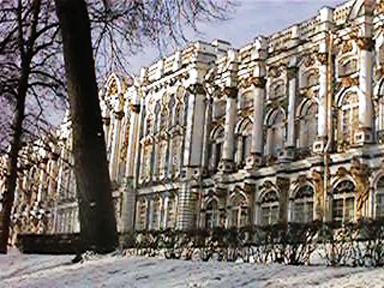 Here is one of the many Imperial palaces of the
Romanov era; plenty of gold, and beautiful statuary. Here is one of the many Imperial palaces of the
Romanov era; plenty of gold, and beautiful statuary.
The one-hour bus ride into the countryside told us a lot about the rural areas. People were selling blankets, glassware, and other newly manufactured goods by the roadside. Our guide told us these people were paid for their work in goods, not money. Not a pleasant concept. If they wanted money they had to market the items themselves -- often to neighbors who may have their own surplus items, perhaps even the same items! The ride through the early winter countryside was right out of "Dr. Zhivago". The Dachas (country homes) of the city people are relatively primitive and reminded us of homesteads in Alaska but in far worse condition. We did not seek out the "dark side". After all, we were tourists with limited time. But we never got the impression that the worst of Russia was being hidden, or that our guides were shining us on. In fact, both Veronika and Oxana seemed genuinely grateful for our presence and even our "courage" to come to Russia at such a crucial time in the country's history. We never felt a sense of danger, but evidence of capitalism and some of its ills were evident -- hookers were unabashed in the lobby of the Intourist Hotel in downtown Moscow, for instance. Muscovites are proud of their Metro system. It is spotless, efficient and beautiful. The train tunnels are about 70 meters underground ("no one knows for sure since that was classified during the Cold War, when they doubled as 'shelters'"). The Metro covers about 270 kilometers. Each stop is different and includes chandeliers, tile work, marble and detailed ceiling mosaics sometimes measuring as much as 25'x50' depicting historic scenes. Marble was pilfered from churches under Stalin. Much of the Metro was built by slave labor, under Stalin. We visited the historic and delightful Moscow Circus, which is renowned for its "dancing bears." Now, there is a cultural icon, like rodeo in the USA, which one simply has to accept. The show was excellent and the delight of the Russian kids was like that of kids at a circus anywhere. The talent of the horsemen, the timing of the acrobats, and the humor of the clowns was world class. On, to St. Petersburg The night train from Moscow to St. Petersburg was neat. Odd thing about Russia, however: We have not seen or heard any mention of double beds. One might expect "bunks" on a train, which there were; but the hotels had twin beds. Our interpreter told us that the population of Russia is about one million less this year than last, which is blamed officially on fewer babies being born (Hmmmmm, is this related to the lack of double beds?). Unofficially, it is likely high infant mortality is taking its toll with the problems Russia is having feeding its people. Our train ride was what they call "Soft Class". It is said in Russia if you want to get someplace fast, take the plane, if you want to arrive on time, take the train. We arrived precisely on time in a light snow. It was still cold, hovering around 25-35 degrees F throughout our visit. Out the window of our train we saw a nuclear power plant, which gave us the creeps. We were cautioned not to buy church icons from street vendors For one, it's illegal; for another many icons have been "liberated" from religious sites in Chernobyl -- they are radioactive! 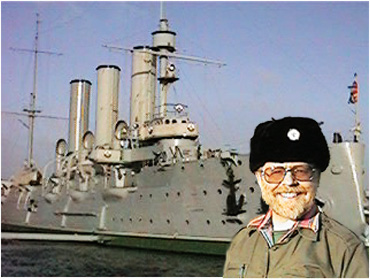 This is the battleship Aurora. We were told this ship
fired the first shot to signal the start of the Bolshevik Revolution. It is now a museum piece. That is the author in a
traditional Russian hat. Hats were $10 from street vendors, and included the hammer and sickle pin. This is the battleship Aurora. We were told this ship
fired the first shot to signal the start of the Bolshevik Revolution. It is now a museum piece. That is the author in a
traditional Russian hat. Hats were $10 from street vendors, and included the hammer and sickle pin.
Sasha, our interpreter in St. Petersburg, told us that in terms of seasons, "St. Petersburg has nine months of anticipation followed by three months of disappointment." About the same latitude as Anchorage, AK. St. Petersburg is a city of about 4 million, designed and built by Peter the Great starting in 1703. For that reason, it is easy to think of St. Petersburg as parallel in development to our East Coast. The lowlands were drained and ultimately came to resemble Venice (the one in Italy) with marvelous canals, beautiful bridges, and magnificent cathedrals. It is Russia's "Window on Europe". In fact, Peter the Great was so eager to emulate the West he encouraged his nobility to take up smoking (like those suave Englishmen). "We have spent the following 300 years trying to get it to stop," our interpreter told us. Well, not exactly. Signs promoting Camels, Marlboros and the like are seemingly everywhere. Welcome to the West! By the way, while we may take a certain delight in the demise of the Romanov's because Imperialist governments do not fit our democratic model, keep in mind that Tsar Peter the Great freed the serfs two years before Abraham Lincoln signed the Emancipation Proclamation freeing US slaves. For Peter it was too little too late, apparently, as the entire family was ultimately assassinated early in the Bolshevik Revolution. The Hermitage According to LIFE magazine, of the 15 great museums of the world, six are in the US, seven are in Europe, one is in Mexico (City). The Hermitage is home to many of the icons, art, and history of Imperial Russia. Much of the art survived Communism, purportedly as an example of the excesses of materialism. The museums in Russia are not, in our experience, as well curated nor as diverse as museums of equal stature in the US, like the Smithsonian. However, as a record of an amazing time in history you cannot beat the preserved carriages, ambler paneled walls, weaponry, jewels, fine furnishings, and even paintings by European masters. I can't resist comparing and contrasting the dynamics of flawed but successful Capitalism, and the brittle homeostasis of a failed Communism. While in Russia we viewed perhaps the two brightest stars in the Russian firmament, the nation's capital, Moscow; and St. Petersburg, its former capital. It is a little like judging the US by visiting Philadelphia, New York City, and Washington, DC. Indeed, if one compares the public art and architecture of Russia and the US, there are similarities in scope and grandeur up to the early 1900s. Western fast food has reached Russia. The local "Grillmaster" was competing with Macdonald's for our fast food business. Quarter-pounder with cheese, fries and a coke for two was about $6.50 (104 rubles) at Macdonald's. Grillmaster was doing it for a little less (72 rubles). That is an expensive meal for some, but still not as expensive as the all-Russian Orient Bistro which served Western style lunches-for-one in the $8-10 range, not including $2 cups of coffee, no free re-fills. 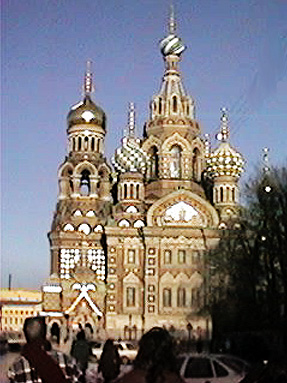 This church, Church of Our Savior on the Spilt
Blood was built on the spot where Emperor Alexander II was assassinated on March 1, 1881. The design was inspired
by St. Basil's.
Why would we consider such gustatory sacrilege as eating "American" in a foreign country? Alas! We missed
fresh fruit, vegetables, and lowfat foods - the tastes to which we are accustomed. Russian food as we
experienced it was uniformly bland and uninteresting. Melody says: "Americans live to eat, Russians eat to
live." I was initially excited about the beef Stroganoff; traditionally sirloin tips, mushrooms and sour cream over
noodles. At our Moscow hotel beef Stroganoff was beef liver, watered down (milky) sour cream, no mushrooms,
over rice. It was not what we'd expected. WE look for the experience; THEY are just happy to get nutrition. This church, Church of Our Savior on the Spilt
Blood was built on the spot where Emperor Alexander II was assassinated on March 1, 1881. The design was inspired
by St. Basil's.
Why would we consider such gustatory sacrilege as eating "American" in a foreign country? Alas! We missed
fresh fruit, vegetables, and lowfat foods - the tastes to which we are accustomed. Russian food as we
experienced it was uniformly bland and uninteresting. Melody says: "Americans live to eat, Russians eat to
live." I was initially excited about the beef Stroganoff; traditionally sirloin tips, mushrooms and sour cream over
noodles. At our Moscow hotel beef Stroganoff was beef liver, watered down (milky) sour cream, no mushrooms,
over rice. It was not what we'd expected. WE look for the experience; THEY are just happy to get nutrition.
We left Petersburg on the 12th; too soon, of course. A timeless city. The trolleys still run. People hustle to work in bitter cold weather like they do across the northern tier states of the US. They long mostly for what the middle class anywhere seeks: a decent living, family, religion, and sound government. Seeing them struggle, we appreciate our good fortune. What a difference a few minutes makes! The airport at St. Petersburg reveals something about the economic state of Russia. About half the inside lights were off, heat was below what we consider room temperature. Gift shops were well stocked but Russians are still learning about things we take for granted, like customer service. About 35 minutes away, the Helsinki, Finland, air terminal was warm, bustled with interesting coffeeshops and restaurants, and gift shops. Duty Free? Haa! The term Duty Free is, at best, a kind of prank. Prices are almost never lower at so-called "duty free shops". Compare prices on perfume, liquor, or electronics wherever you go, and the prices SELDOM vary enough to warrant the hype. This has been true on cruise ships, The Bahamas, Canada, Russia, Finland and so called duty free shops at international airports. Beware the term "Duty Free". You might save sales tax. You can do the same buying through catalogs or on-line! "By the 'way" January 1999 We settled in Willcox, again. We even got phone service! This is cowboy country. The sign in the store window says "Cowboy clothes for sale"; and guess what? They really are clothes for real cowboys. This is not just "Western Wear" but real boots, tough jeans, hard wearing Carharts and a wide range of hats from the cheap straw type that last a season or so, to the fancier Stetsons. "Where's the Beef?" Speaking of cowboys, we went to the weekly Livestock Auction about a mile from the RV resort we call home. After spending at least a month a year in this little hamlet we decided we better see what that was all about. It was interesting. Hundreds of head of cattle are auctioned off, along with a few horses now and then. The process is fascinating. There are newspapers about cattle prices, battles over red meat, slaughterhouse conditions, listeria and e coli, and prices of beef. The cowboys are the genuine articles, not dance floor replicas. They wear dusty hard-bitten clothes and genuine expressions. The older men, mostly ranchers, are soft-spoken gentlemen who have worn out their broadcloth shirts and faded Wrangler jeans. They wear cowboy boots, becauuuuuuzzzz... they're cowboys! The women are generally serious, quiet in their denim and calico, and seem not to miss a thing. Livestock auctions are not a place to gossip or gab. People speak seriously of the challenges of running a ranch where it may take five acres to feed a single head of cattle -- and 10,000 acres might support 2000 head. The auctioneer spits tobacco juice unconsciously and fairly accurately. The wrangler lets in a couple of heifers five or six months into gestation and calls out a starting price. The auctioneer rattles off prices to increase the return to the rancher and the auction house. He knows the buyers and their interests; their names rattle out with his patter to remind them, if this is the one they want. People at the auction might talk about how many people died last year from eating imported raspberries or poorly prepared greens; comparing and contrasting that against those who say red meat is a killer. Around here, beef is what's for dinner! Vegetarians are lovingly referred to as "weedeaters." Their point being: Any food needs to be prepared properly. Local/ethnic foods In this part of the world there is a sort of country sausage known as Chorizo. It is a Mexican food -- like sausage. In most cases it is chopped or coarse ground beef with an assortment of spices (lots of cumin, I think). There is also a processed food product which carries the same name, which is sort of gray and feels in the package a little like what Freud might describe as "baby's first gift to momma." I was interested in this because the processed product in the package did not resemble the fresh made chorizo I saw in the meat cooler. So I decided to compare ingredients. The fresh stuff was "fresh ground beef and spices." The other one, the gray mush, listed the following -- and I am not making this up: "beef sinuses, lymph glands, cheeks, tongues and fat." Needless to say, although we strive to be respectable amateur cultural anthropologists with a growing passion to objectively witness and experience other cultures and subcultures here in North America, we did not buy or eat this product. One of the things we have discovered -- no surprises -- is that every town has a reason to exist. So it is, with this little hamlet on the edge of the desert where the cattlemen sell their steers and heifers, ranchers come from miles out in the desert for supplies and repairs, and there is a level of functionality which obviates the need for Walmart, TJMaxx, The Gap, The Limited, the unnecessary. Well, almost. Out by the interstate there are all the usual fast food spots, the MacArbys, chicken-fried in 30-weight, and pizza; things that taste GOOD! In the town of Willcox there are small stores, independent operators, and the small beating heart of a community challenging what works and what doesn't. AOL has not discovered Willcox. But the Internet has, and there is an ISP if you really want to get on line. And providers like AOL and ATTWORLD.NET offer surcharge numbers if you really have to get in touch with your cyber-self (Which we do!) or anyone else. Well, that is where we are at this point. We expect to be here in Willcox until mid-March and then start working our way north, arriving in the Seattle area in late March or early April. We expect to return to Alaska around the second week of April for another incredible summer. "By the 'way" March 1999 Moving Month In a few weeks we will pack up and leave Willcox, meandering North, eventually ending up in Tacoma for a couple of days. While there, the company that installed our $600 patio room will now shell out $2000 in repairs to damage they inflicted through clumsy installation. The damage amounts to about a dozen large screw holes drilled into the sides and doors by an incompetent installer. Gee, do you suppose ANY learning took place here? I told them they could find the money in someone's salary, or think of it as "education" and hope that future installations won't be as badly executed. They will not only repair the RV to like-new, but put us up in a cat-friendly hotel and pay our eating out expenses as well. Meanwhile, we have had quite a time here in Willcox. Being the desert and being a broad valley there is plenty of fairly flat country where cycling for exercise and sightseeing is great. We are no longer interested in doing 75-80 miles per day in heavy mountainous country, but biking is a great way to exercise, and we get to do it in "winter" which is a switch from our Alaska winters. Speaking of Alaska, for our friends who do not live there, this winter has been one for the record books. Temperatures have reached -60s in the Interior of the state and wind chill has been as low as MINUS 107 degrees F just south of Fairbanks near McKinley Park! We recall temperatures like that in the late 1960s and in the 1980s. Well, it makes us appreciate the desert, and our friends and family who function every day all-year long on The Last Frontier. The most exciting thing about all this is that the weather in Alaska is magnificent in the summer. In fact, it is so spectacular that many of the visitors (tourists) we meet there in the summer "complain" that it is "not the Alaska of legend." Sorry! Summers are hot, dry, and green in Interior Alaska; lush and temperate on the coast. It is spectacular country with huge mountains, vast open country, pioneering people and a wonderful spirit. Come experience it! We have tried to share with our friends and family over the past five years various anecdotes and adventures which reflect a little of our experience on the road. We have been fortunate to have met fascinating and fun people along the road. Sometimes we manage to connect with friends out here on the road by staying in touch through the magic of e-mail. We wanted to share with you some of their adventures. We met Bill and Betty at Big Bend Texas, a National Park on the Rio Grande River, in 1997. They subsequently made the trip to Alaska and traveled on the Riverboat Discovery with us in 1998. This year we met with them again here in Willcox. Here is a segment from their adventures this winter in their new 36' motorhome traveling through Florida. "After we got hooked up at Tyndal AFB fam camp, we headed over to Panama City Beach (to) get our forwarded mail. Shortly after we left, it started raining and became a severe thunderstorm. Pretty soon it was raining and blowing so bad we couldn't see to turn around so we continued on. Just as we cleared the bridge to the west of town, all power was lost to the street lights, buildings, etc., and it became almost completely dark, just like midnight, I had to stop to make a left turn and looked in the rear view mirror and saw a tornado cross the road right where we had been about 5 or 10 seconds before! It was on national TV so you may have seen the damage that happened. So we lucked out again!" Meanwhile, Phil's sister-in-law, Laura, is an itinerant Special Education (deafness) teacher in and around Anchorage, Alaska. How's this for an adventure in the North land? (Laura, I edited this for length!) "One of my hard of hearing students (a 5th grader) was at a winter camp with her class (on the shores of Lake Edmonds). I drove out there to see her. I've never driven into the actual camps before, but had gotten instructions from a couple people, and was real proud of myself that I followed the signs and was finally turning onto the road to Camp Carlquist. It was okay at first ... then all of a sudden I was on the precipice of a hill looking down to where the road made an almost perpendicular drop, at the bottom of which was a hairpin turn to the right. I slowed, gulped, and made the plunge. After this first one which I maneuvered successfully, there was an increasing succession of similar road conditions. I was getting quite nervous because I realized that although I was getting down okay, I would have to drive back up on the way out É and it would be impossible to get a good run at any of these steep hills. I was thinking, "My God, how do I get myself into these situations?!!" About halfway in, I was really pondering whether I should turn around and go back, but there was no turnout wide enough. With all of my worries and fears running rampant, you can imagine that the road seemed pretty long. Coincidentally, right when I arrived, I saw a group of kids coming out one of the buildings for a lesson in outdoor cooking. They were making French toast in a skillet over a campfire (it turned out delicious! I got to try some -- with real maple syrup!). I met one of the teacher's husbands, and mentioned to him that I was a little nervous about driving back out on that road. He said, "Why don't you take this road right here when you go back out?" When I got ready to go, I noticed that a truck was driving ON the frozen lake. I said, "Is that the road you meant?" He said, "Yeah it's just right here, it'll only take you two minutes back to the highway." Then of course I was imagining my car breaking through the ice, but the other vehicle had been a truck, and I imagine after our recent cold spell, the ice is pretty thick). So I did as they suggested, and there I was driving across the ice of this frozen lake. And he was absolutely right, once I was on the Lake Road, it was a breeze! Flat as a pancake, and just straight across. I wonder how many itinerant teachers (in the Lower 48) drive across frozen lakes--all in a day's work!!" And finally, from a co-worker on Discovery III. He and his wife of two years spent six months on the road in a dandy 24' motorhome towing a car which they drove out from Alaska in October. From their newsletter about Mardi Gras: There was some variety among the floats (but) they all had a similar layout to accommodate their general purpose -- to be huge dispensers of cheap bead necklaces. Each float would have two levels, with the upper level being open and the lower level being divided down the middle to accommodate thing such as extra beads and porta-potties for the riders. A couple of dozen riders would be on a float, each with a huge collection of beads and trinkets at their disposal. Their mission, over the course of 4 or 5 hours was to get rid of all of their beads, without running out until the end. The amount of beads thrown were such that after 4 parades we were able to fill a backpack with nothing but beads! In hindsight we would probably have focussed most of our people watching on Mardi Gras day itself. Over the weekend the crowds were mostly drunk people on the street doing unusual things to collect beads from the people on the balconies. These people were still out Mardi Gras day, but there were also a tremendous number of people out in a variety of costumes ranging from the risque (people dressed only in bubble wrap) to the truly creative and hilarious (people dressed as the Taj Mahal or as "white trash" bags)." So, we all have lives "on the road." We enjoy hearing from others as much as we hope they enjoy hearing our stories. Finally, friends, here's a quote from out on the Net. "I do not feel obliged to believe that the same God who has endowed us with sense, reason, and intellect has intended us to forego their use." Galileo Until Next Season, all the best, to all the best! |

